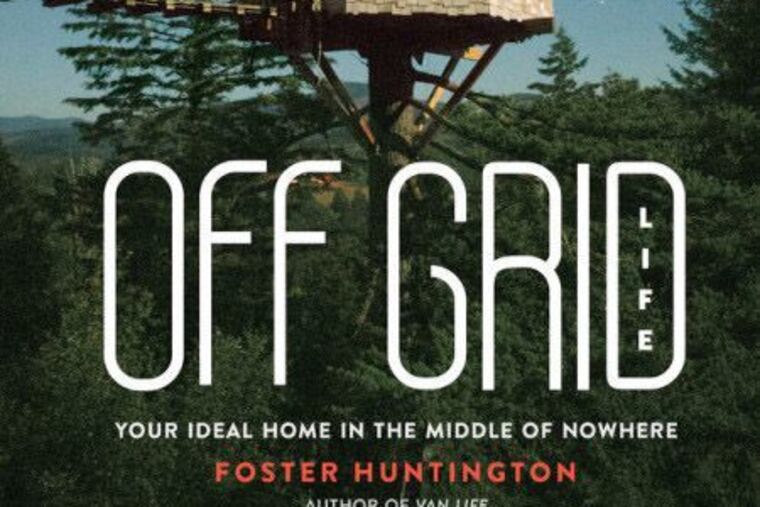‘Off Grid Life’ will feed your get-away-from-it-all fantasy (or kill it) | Book review
The heavily illustrated volume is a collection of photos and essays that examines various kinds of small, self-sustaining living structures: treehouses, yurts, boats, “Earthships,” vans, and more.

Off Grid Life: Your Ideal Home in the Middle of Nowhere
By Foster Huntington
Black Dog & Leventhal. 209 pp. $28
Reviewed by Timothy R. Smith
In 2011, photographer and filmmaker Foster Huntington left his job in New York to live in a van. He began tagging Instagram posts of his new, mobile life with #vanlife. A movement was born. Today, #vanlife has more than 8 million posts. Every image is full of the deepest yearnings for freedom and independence. Amid the coronavirus pandemic, #vanlife has taken on a new urgency, capturing that growing desire among so many of us to just toss it all and live off the grid.
As it happens, Huntington’s latest book is called Off Grid Life: Your Ideal Home in the Middle of Nowhere. The heavily illustrated volume is a collection of photos and essays that examines various kinds of small, self-sustaining living structures: treehouses, yurts, boats, “Earthships,” vans, and more — all far from cities and suburbs. The photos unfurl the imagination: an Earthship modeled after a Hobbit house, a fire pit in the woods beside a homely black shipping container, a treehouse with a wraparound porch, nestled between birches or aspens. If you really are thinking of returning to the land (or sea), this book will both feed your fantasy and give you a taste of what the experience is really like. Hint: transformative, if not always that easy.
“My hope for this book is to inspire people to leave cities and move to these areas and find a piece of land. Start with something small,” writes Huntington, who splits his time between a barn and a treehouse in the Columbia River Gorge. “Build a yurt, put down a shipping container, or level off a space for a tiny house. Plant a garden. Invite friends out for a weekend. Build a wood-fired hot tub. Create memories building a structure with your friends and loved ones. Get your hands dirty.” He makes it sound awfully appealing.
As someone who lived off the grid — I left a job at the Washington Post to live in a van for a few summers while traveling across the country — I found the book affirming and fantastically helpful (even if for me, in retrospect). It’s full of the little insights you probably aren’t thinking of when you dream of living in a cabin, RV, or other alternative abode. Some will inspire; others may serve as a cautionary tale.
As in Huntington’s 2017 book Van Life, Off Grid Life features the stories of real people who have taken the plunge. There are photographers Stephen and Hanna Nereo, who left Los Angeles for Colorado, where they built a 435-square-foot canvas-and-wood yurt, largely with their own hands. Nearly four years after fleeing the city, the couple isn’t looking back: “The dog is a wolf now, running wild, howling at the moon. We’re moving in that direction, too.” Builder Taylor Bode and his wife, Steph, share their experience building an Earthship — a largely underground abode that’s designed to collect and store its own energy — in Santa Cruz, Calif. Though the project was labor-intensive, it was less costly in other ways. Thanks to bartering and the goodwill of neighbors, the price tag was $10,000. The couple wouldn’t live any other way: “When you live underground, like in an Earthship, there is an unavoidable feeling that you are literally entering into the Earth in some way. . . . You become aware of these subtle things you never noticed in the chaos of the city.”
I understand that feeling. When I was a park ranger in Alaska, I spent many hours working inside a yurt. The majority of our visitors popped in just to see one of these structures, because they had seen them on the DIY Network show Love Yurts. They always had a wistful, bleary, but satisfied look when they looked around. These little structures symbolized something to them: shucking debt, unloading a home mortgage, or the overbearing accumulation of stuff, all forms of modern bondage. Having lived in a van, I appreciate the appeal of downsizing. Whether you’re dreaming, hoping, or planning, Off Grid Life is a good place to spark — or park — your dreams.